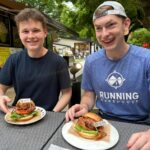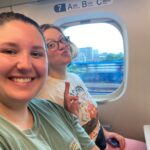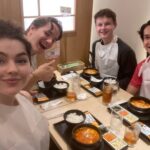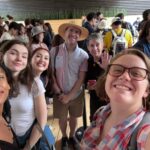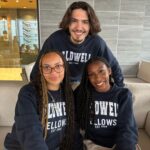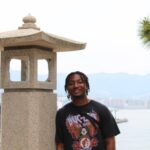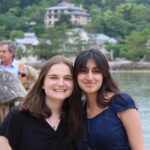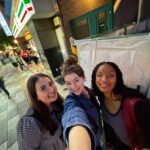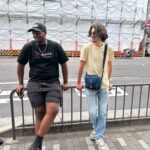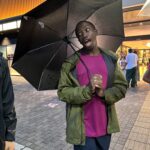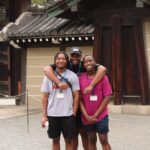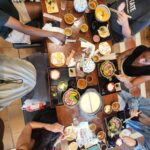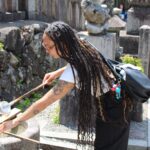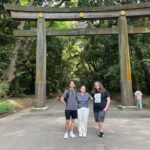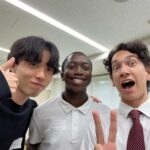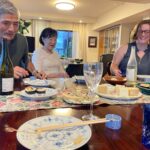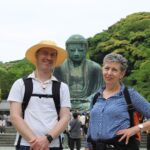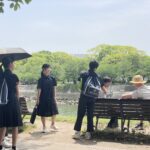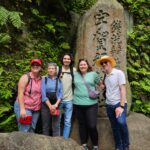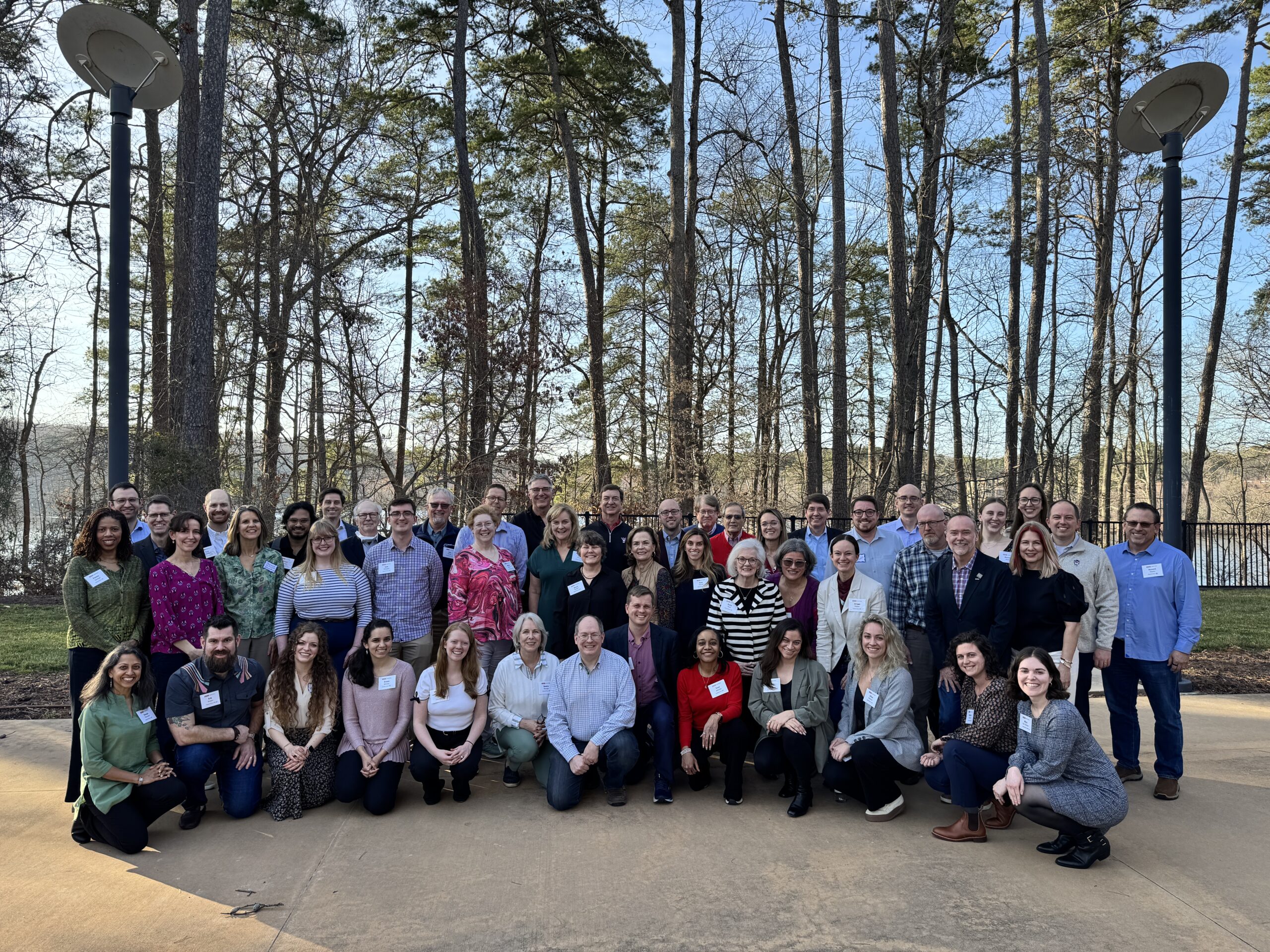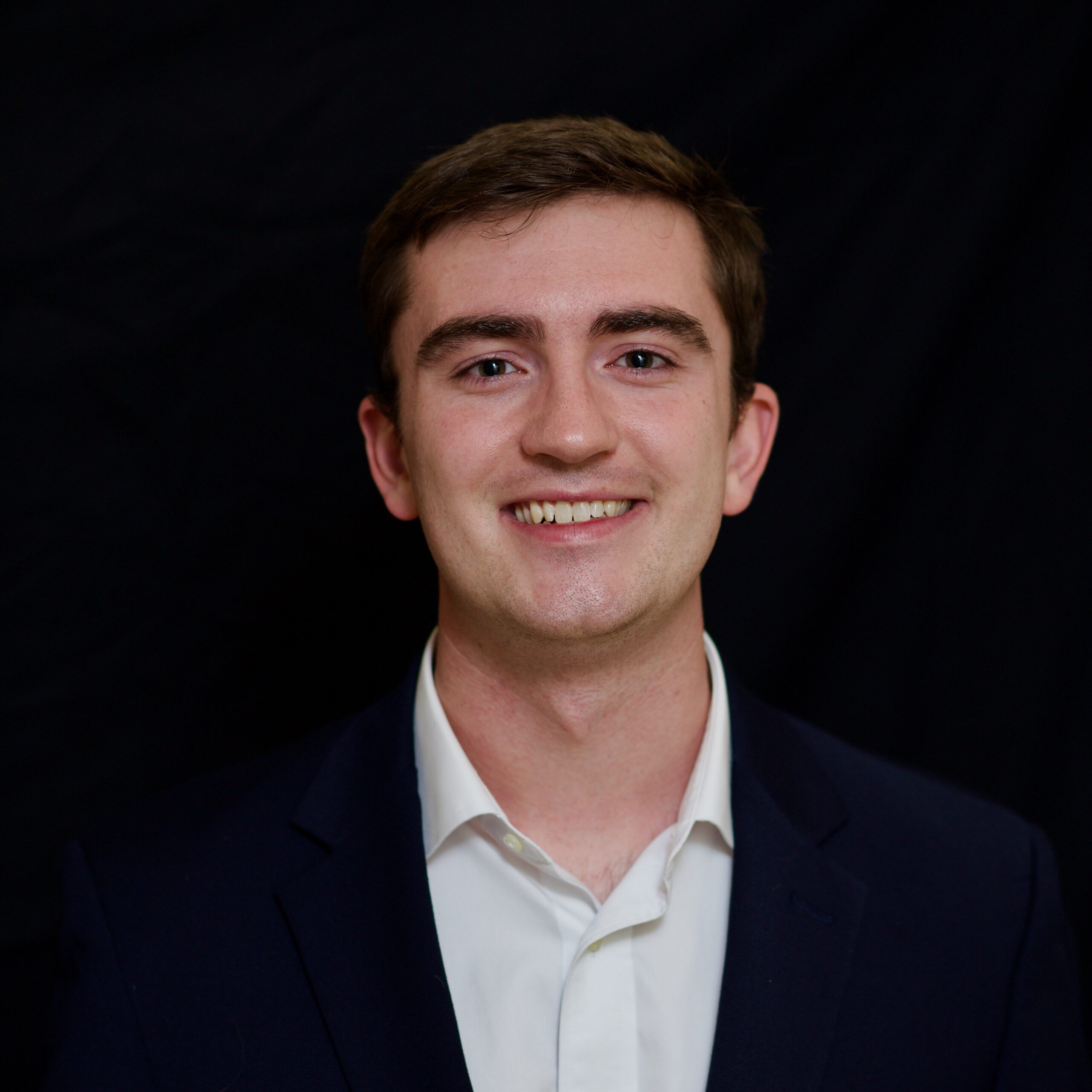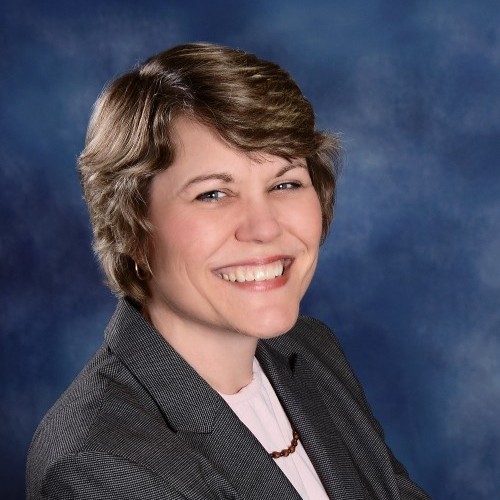Caldwell Fellows Journey to Japan
A Transformative Global Learning Experience
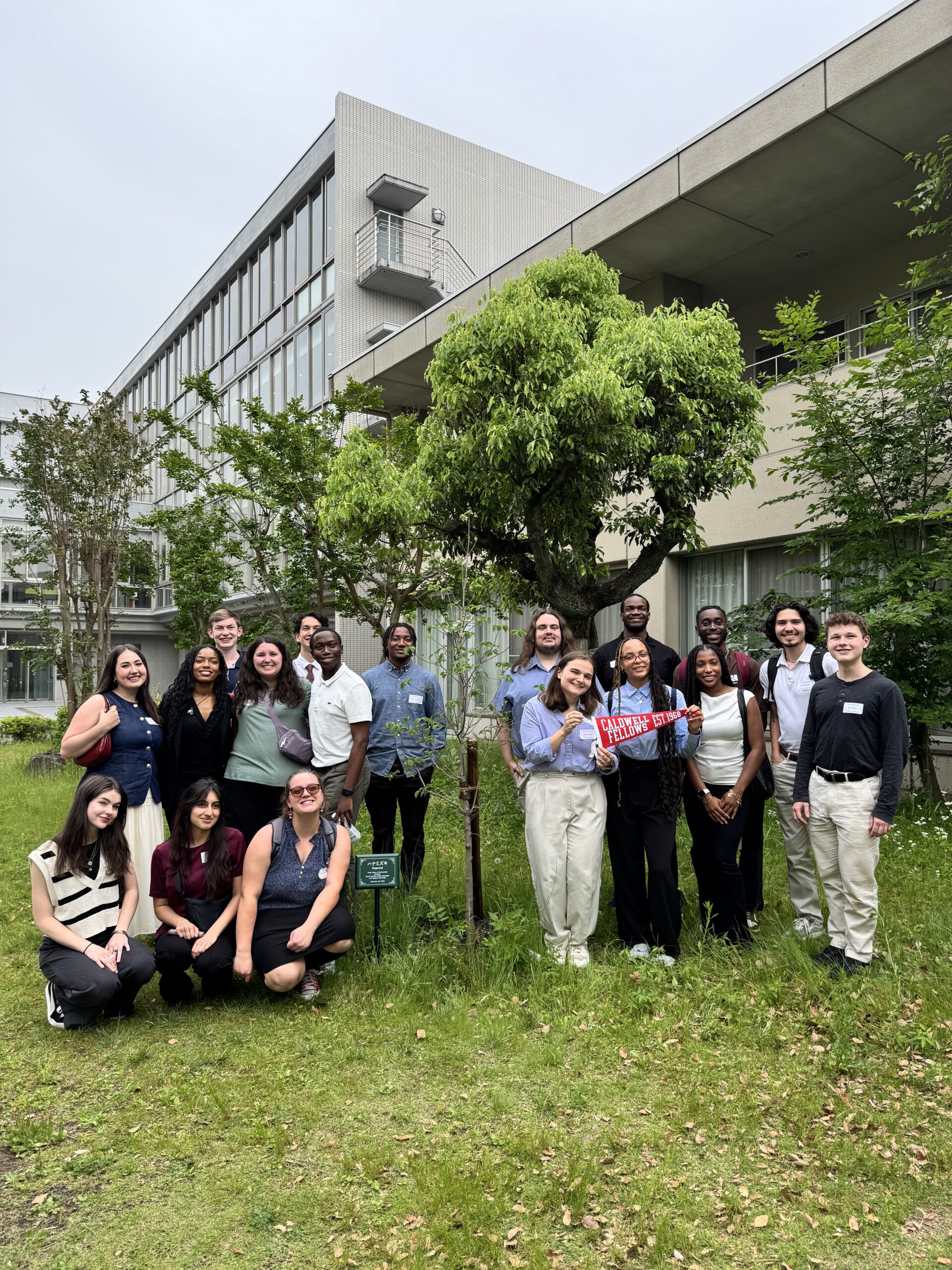
18 Fellows Expand Global Perspective and Deepen Leadership Development From May 13-26, 2025, eighteen current Caldwell Fellows embarked on an extraordinary journey across Japan, participating in immersive experiential learning that challenged their perspectives on leadership, resilience, and cross-cultural understanding. The two-week experience took Fellows through Tokyo, Nagoya, Kyoto, Hiroshima, and Osaka. Their reflections exhibit significant insights that deepen their personal development and leadership practice.
A Partnership Comes Full Circle
The trip was made possible through a collaborative partnership with Stephen Sumner, Director of the NC Japan Center, and a Caldwell Fellows alumnus from the Class of 1996. For Sumner, facilitating this experience represented a meaningful full-circle moment. The Fellows program enabled his first trip to Japan, connecting him with an internship opportunity through alumnus Jim Arnold (1973) and providing funding for his travel. That summer experience launched what became a 15-year career in Japan. Stephen’s return to NC State to serve as Director of the NC Japan Center is a compelling story about the transformative power of the Fellows program. Investing in young people of exceptional promise accelerates their leadership development and has ripple effects that extend far beyond the individual.
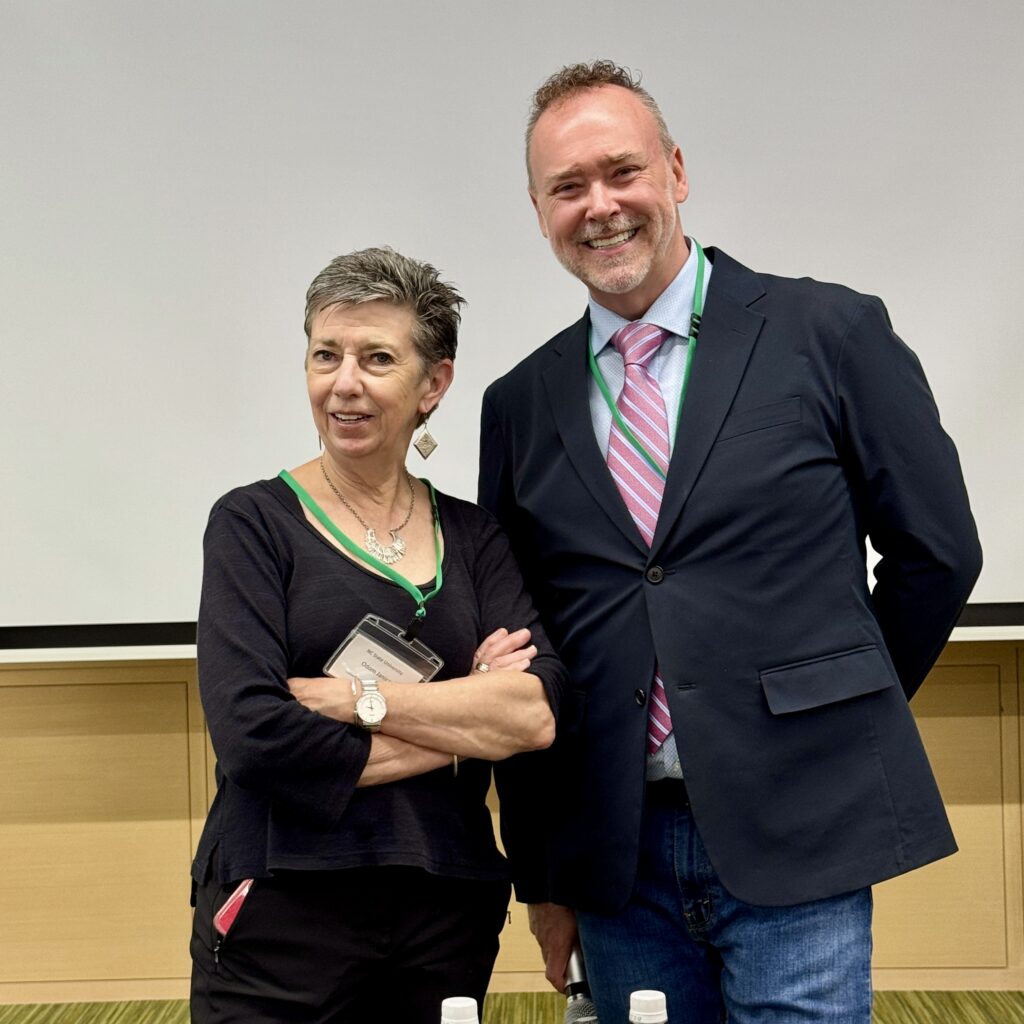
Empowering Student Ownership in Tokyo
The experience began with an innovative approach to experiential learning. Before departure, Fellows were challenged to plan their own itineraries for the Tokyo portion of the trip. This empowered students to research their specific interests, learn to navigate public transit in a foreign language, and take immediate ownership of their experience upon arrival. Students’ pursuits reflected their individual academic interests, ranging from architecture to fashion design, and botany to mechanical engineering and automotive design. The approach set the tone for active engagement and personal responsibility throughout the journey.
Leadership Exchange at Nagoya University
In Nagoya, Fellows had the privilege of spending a day at Nagoya University, one of Japan’s premier higher education institutions and a partner University with NC State for forty years. The highlight was a leadership summit facilitated by Sumner, Dr. Janice Odom, Director of the Caldwell Fellows Program, and Dr. Akinari Hoshino, Nagoya faculty member in International Development. This unique forum enabled Fellows and Nagoya students to collaborate, exploring the alignments with servant leadership implicit in the philosophical roots of Japanese culture and considering the challenges to its practice presented by each of our cultures. The day culminated in a spirited group dinner, further strengthening connections between the two groups of students.
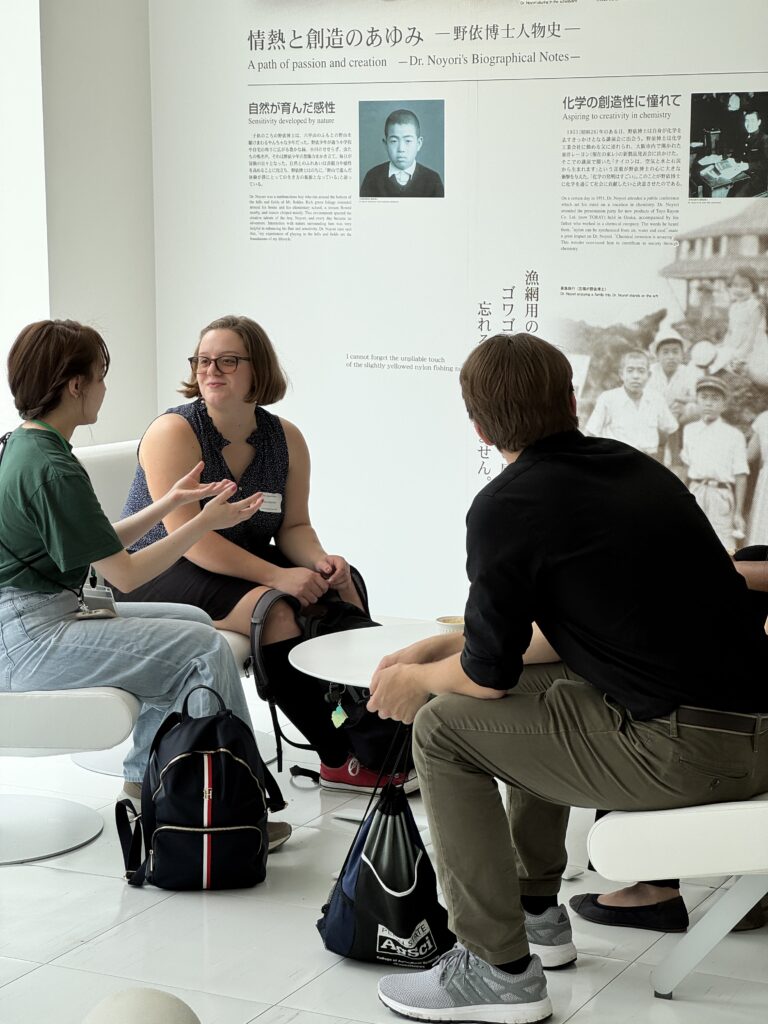
Abby Commodore, Class of 2027, reflected on the profound impact of these conversations: “One of the most enriching parts of the trip was our time at Nagoya University, where we engaged in conversations about servant leadership with local and international students. For many of them, this was a new concept, one that challenged conventional ideas of leadership centered around authority or hierarchy. Introducing the idea that leadership is grounded in service and empathy sparked thoughtful dialogue and mutual reflection. This experience affirmed for me that, as growing leaders, it’s our responsibility to seek out opportunities that push us to articulate and refine our understanding of leadership. It also reinforced the importance of being able to utilize active listening as a tool to communicate the need for servant leaders across cultural contexts.”
This experience affirmed for me that, as growing leaders, it’s our responsibility to seek out opportunities that push us to articulate and refine our understanding of leadership.
-Abby Commodore ’27

History and Traditions in Kyoto
In Kyoto, Fellows immersed themselves in Japan’s rich cultural heritage, exploring the preservation of ancient traditions and historic sites. The city provided a powerful backdrop for understanding how societies honor their past while embracing the future.
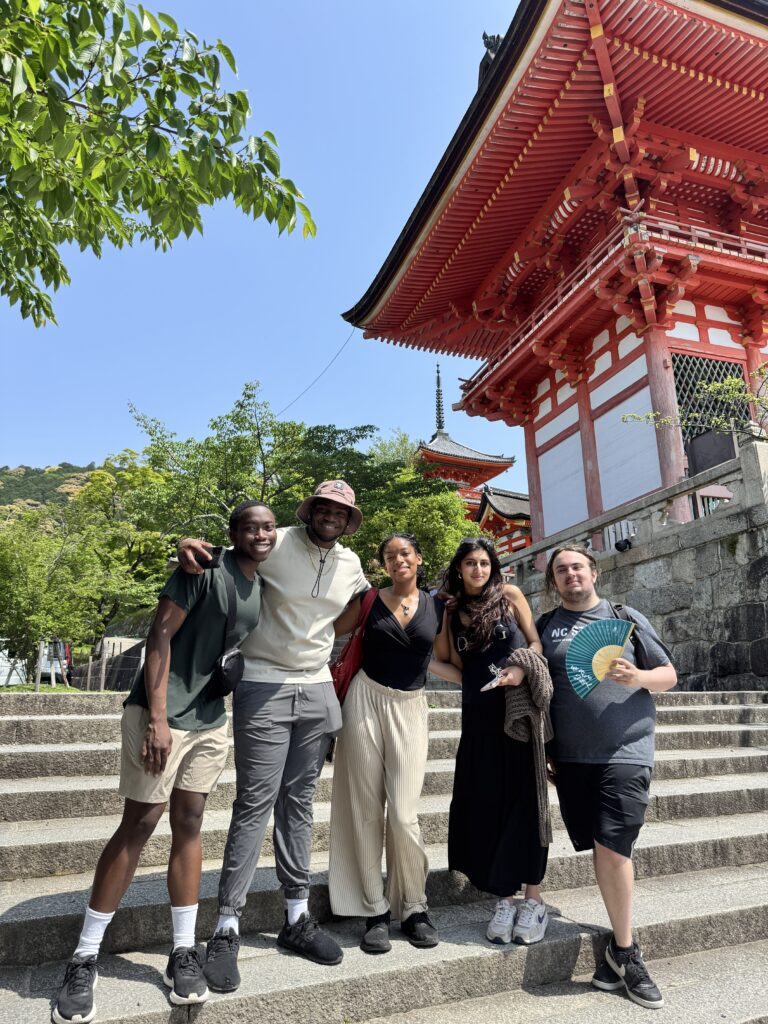
Lessons in Resilience and Peace in Hiroshima
Perhaps no stop was more impactful than Hiroshima, where Fellows confronted the tragic legacy of the atomic bombing and its lasting cultural and historical impacts. The group spent a day at Peace Memorial Park and Museum, gaining a deeper understanding of this world-shaping event. A particularly moving moment came when Fellows witnessed groups of local elementary school children at the monument pledging to pursue peace for a better world.
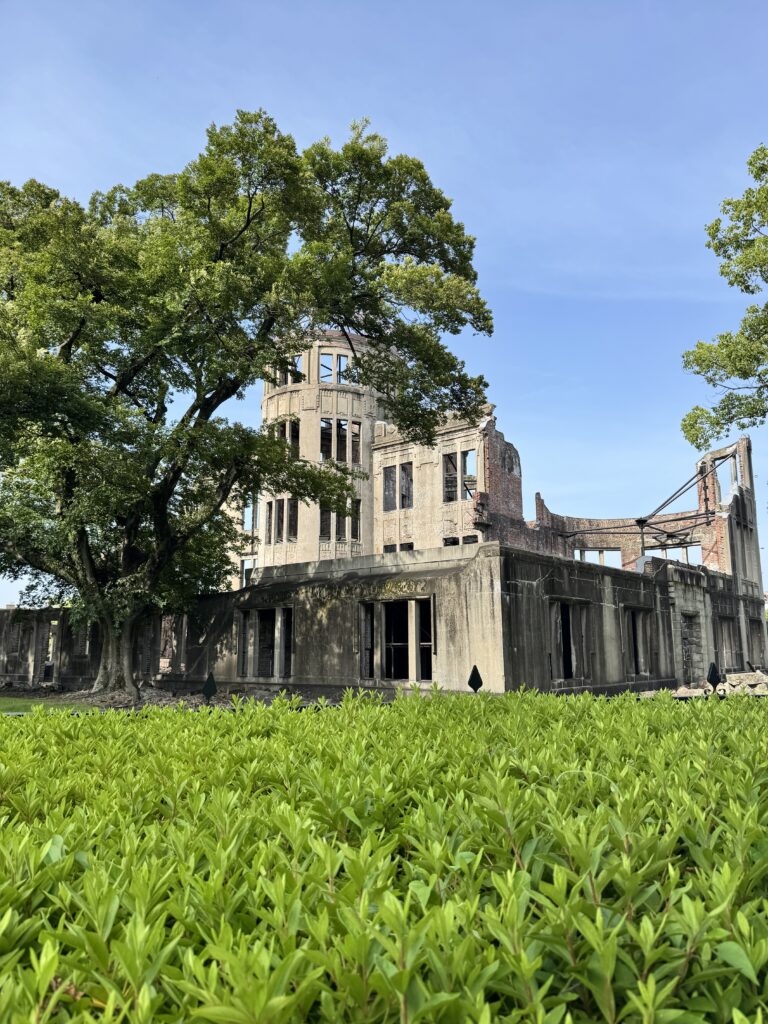
TK Aniekwensi, Class of 2027, shared how the experience fundamentally shifted his worldview: “The part of the trip that impacted me most was Hiroshima. Seeing how there’s no lingering resentment, only hopes for peace in the future, was astounding. Coming from my background, this seemed almost impossible—what happened that day would be considered unforgivable. But it completely shifted my perspective on how a society can bounce back from something so devastating. Forgiveness and working toward a better future are the only way to grow from a tragedy like that. Though our time in Hiroshima felt somber, I learned so much from the museum and memorial park. Watching a city rebuild itself from such destruction is a testament to the Japanese spirit and resilience.”
Forgiveness and working toward a better future are the only way to grow from a tragedy like that. Though our time in Hiroshima felt somber, I learned so much from the museum and memorial park.
-TK Aniekwensi ’27
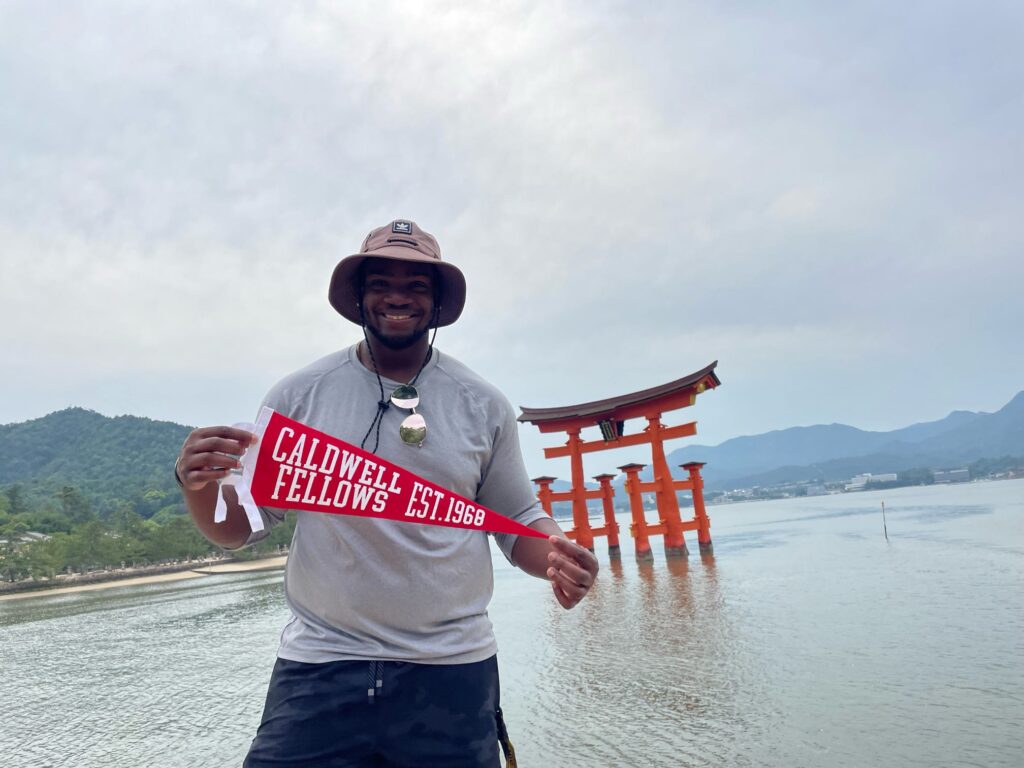
Global Perspectives at Osaka’s World Expo
The journey concluded in Osaka, where Fellows explored the city’s vibrant food culture and attended the 2025 World Expo. This global event provided students with opportunities to critically examine communication and representation from diverse countries, adding another layer to their cross-cultural learning experience.
Transformative Insights on Presence and Care
For many Fellows, the trip’s impact extended far beyond specific locations or activities. Mahika Patil, Class of 2027, captured the subtle but profound transformation many experienced: “I think about all the small systems in place – the tactile pavement or ‘tenji blocks’ to help the visually impaired or school children wearing bright yellow hats on field trips for visibility and safety – and how they work because people let them work. Because there’s an unspoken agreement to respect the shared space and anticipate one another’s needs. There’s something powerful in that softness. I carry it with me now: in how I listen, how I wait, how I try to move through the world with more patience and empathy. Not to be perfect, but to be present. I’ve started to understand that presence isn’t always about doing more; sometimes it’s about stepping back and creating space. There’s a subtle strength in the kind of restraint that values understanding over efficiency. In Japan’s quietness, I felt it: a soft-spoken kind of care. A world not built for speed, but for consideration.“
There’s a subtle strength in the kind of restraint that values understanding over efficiency.
-Mahika Patil ’27
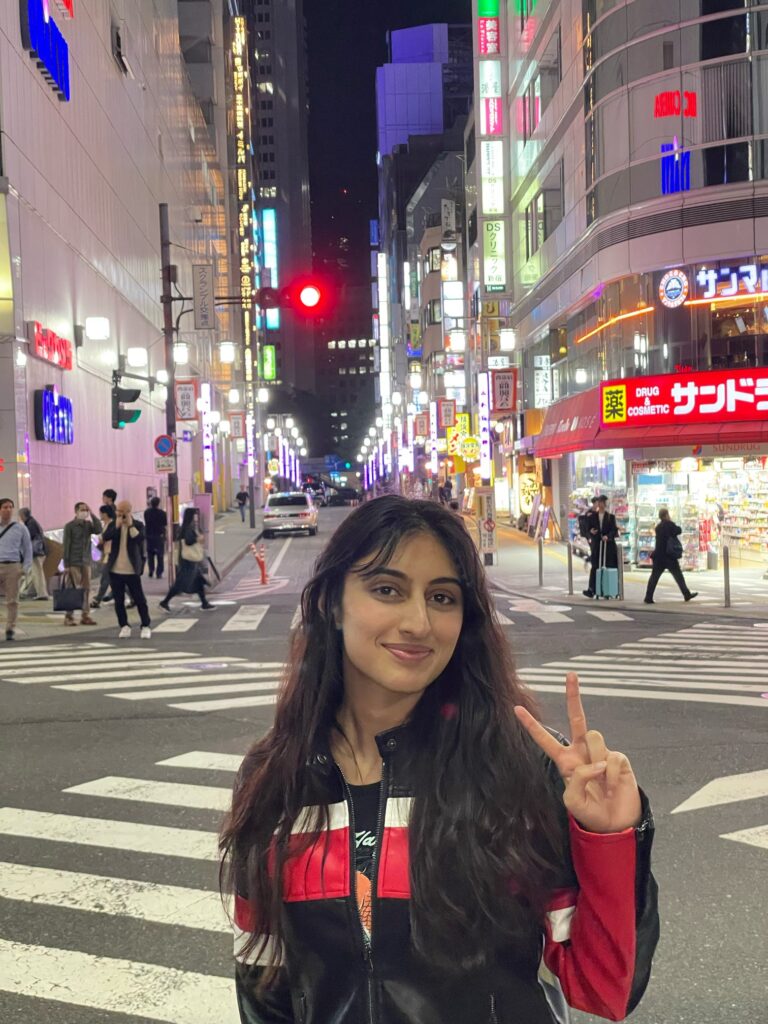
Looking Forward
Based on the profound impact of this experience, the Caldwell Fellows Program and the NC Japan Center hope to offer this trip as part of a regular rotation of international learning experiences. The success of this inaugural journey demonstrates the power of immersive, cross-cultural learning in developing thoughtful, globally-minded servant leaders. We will soon publish each student’s written reflection on the Caldwell Fellows website for further reading about the impact of this experience.
Making It Possible
High-impact experiences like this are made possible directly through the generosity of donors. Scholarship endowments include funding for ELGs (Experiential Learning Grants). These covered the costs of student travel, lodging, and experiences. Programmatic funds (like the Caldwell Fellows Fund) provide the necessary resources for staff to design and lead the experiences. The Caldwell Fellows Program remains deeply grateful for the gifts that make these transformative experiences accessible to all Fellows, regardless of their financial circumstances.
As these eighteen Fellows return to campus, they carry with them new perspectives on leadership, resilience, forgiveness, and the quiet power of consideration for others. Their experiences in Japan will undoubtedly influence their continued development as servant leaders and their future contributions to their communities and the world.
- Categories:
